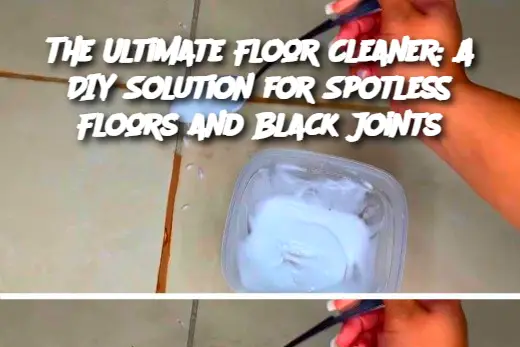ADVERTISEMENT
For Stronger Grout Cleaning: If your grout lines are heavily stained, you can increase the concentration of baking soda in the recipe or leave the solution on the grout for a few minutes before scrubbing.
Add Citrus: For a fresh, natural scent and additional cleaning power, you can substitute vinegar with lemon juice or add lemon essential oil for a refreshing twist.
Add Hydrogen Peroxide: If you want to increase the whitening effect on grout lines, add a small amount of hydrogen peroxide (a tablespoon or so) to the mixture. This will boost its stain-lifting ability.
Frequently Asked Questions:
Is this recipe safe for all types of floors?
This cleaner is generally safe for tile, ceramic, and laminate floors. However, avoid using it on hardwood floors, as vinegar can be too harsh on wood finishes. Always test in a small, inconspicuous area first to ensure compatibility.
Can I use this cleaner on marble floors?
No, this cleaner should not be used on marble or any other natural stone surfaces because the vinegar may damage the stone. For stone floors, opt for a pH-neutral cleaner instead.
How often should I clean my floors with this solution?
For general maintenance, clean your floors with this solution once a week. For heavily stained or dirty floors, you may need to clean more often, or apply the solution and allow it to sit longer before scrubbing.
Can I use this cleaner for other surfaces in my home?
Yes! This cleaner is multi-purpose. You can use it to clean countertops, bathroom sinks, and even tiles in your shower. Just be sure to test it in small areas first to ensure it’s safe for different surfaces.
With this DIY floor cleaner, you can say goodbye to dirty floors and grimy grout! It’s a natural, effective solution that will keep your home sparkling clean without the use of harsh chemicals. Give it a try and enjoy the transformation!
ADVERTISEMENT
